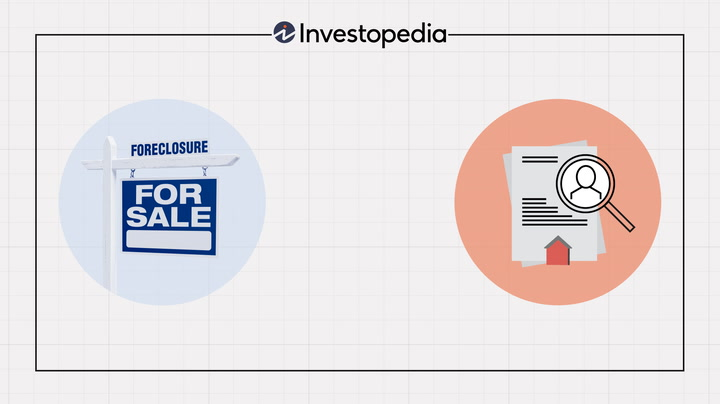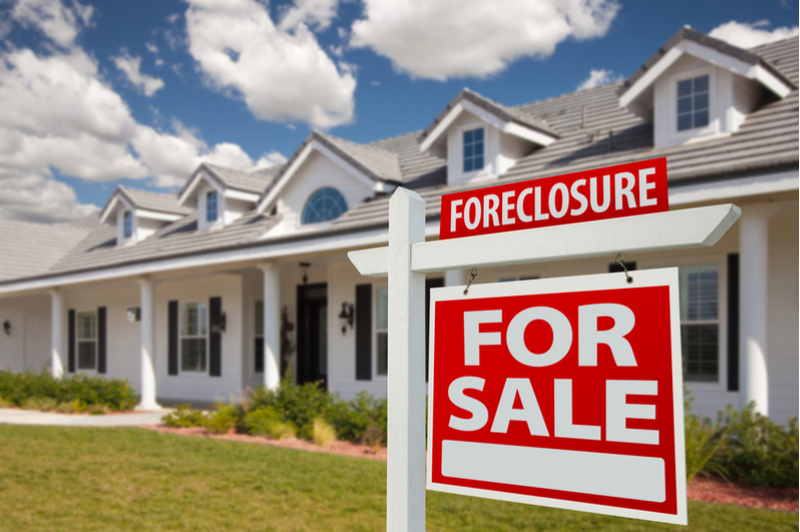Do You Know: What Is Foreclosure?
Dec 12, 2022 By Susan Kelly
Introduction
It is considered foreclosure when a homeowner defaults on a mortgage debt. This means that the lender or bank that gave the loan to the homeowner will become the legal owner of the residence. At first, in the foreclosure process, the bank or lender will make every effort to work with the buyer to settle the debt and restore the buyer's possession of the property. If the buyer ignores the lender's eviction notices, the lender may issue an eviction notice. They decide that selling the house to a new buyer is the most efficient way to recuperate the loan.
The Meaning of Foreclosure
What is a foreclosure? During foreclosure, the lender legally takes possession of the mortgaged property to recoup the outstanding balance of a defaulted loan. When a borrower fails to make a certain number of scheduled monthly payments, this is called "default," but there are various ways in which a borrower can fall into default.

Insights Into the Foreclosure Process
When a borrower defaults on their mortgage or deed of trust payments, the lender can foreclose on their home by exercising their rights under the mortgage or act of confidence contract. Foreclosure often begins after a borrower fails on or misses one or more mortgage payments. However, this varies by state. In this case, the lender will notify the borrower through missed payment notification that the price for the given month has yet to be received. Lenders usually issue demand letters after two missed payments. Although the lender may be less lenient in this situation than with a simple late payment notice, it may still be possible to work out a payment plan. After 90 days of missed payments, the lender will issue a notice of default. At this point, the debt is sent to the lender's foreclosure department, although the borrower usually gets another 30 days to catch up on payments and avoid foreclosure. If the homeowner has yet to reinstate their fees by the end of the grace period, the lender will start the foreclosure process.
Classifications of Foreclosures
The foreclosure procedure might begin after many missed mortgage payments. Foreclosure can occur in two significant ways:
- This is called a "judicial foreclosure," which requires the lender to go to court to foreclose.
- Depending on the laws of the state in which the property is located, this could be a nonjudicial foreclosure.
Foreclosures can take numerous forms, depending on the property's state and the mortgage agreement. Legal action may or may not be taken during a foreclosure. Foreclosures come in a variety of flavors, including:
- To repossess a property through the legal system:
After giving the borrower notice of the nonpayment and filing a lawsuit, the lender may judicially foreclose on the loan. The foreclosure procedure will move forward if the homeowner needs to catch up on their mortgage payments within 30 days.
- Power of sale:
If your mortgage contract has a power of sale language, you can foreclose using this method in those states. Once a borrower defaults on their mortgage, the lender can put the foreclosure homes up for auction. Since no court proceedings are necessary, a foreclosure conducted via a power of sale is dubbed a nonjudicial foreclosure.
- Strict foreclosure:
Because they are illegal in most jurisdictions, strict foreclosures are a rarity. If the homeowner does not pay their mortgage as ordered by the court, the mortgage holder can initiate a lawsuit and perhaps take possession of the residence.
How Long Does It Take To Go Through A Foreclosure?
At the beginning of 2022, the average time it took to complete a foreclosure in the United States was 948 days or almost 2.5 years. This information comes from ATTOM Data Solutions. The average time to foreclosure varied from four years in certain jurisdictions to nearly seven in others. Your home may be in foreclosure, but that doesn't mean you can stay there forever; you'll have to move out until it's sold. If you don't leave, a police officer will come and take you and your stuff away.

Conclusion
Mortgage arrears can be avoided with patience and open communication. Contact your mortgage lender or servicer if you need help making your payments. If you are experiencing temporary financial difficulty, they can work out a payment plan or delay it by a month. Lenders are not entitled to any revenues from selling a foreclosed property that is more than the outstanding loan sum plus any fees the borrower owes. In other words, the borrower receives the surplus over the principal and the foreclosure fees.








